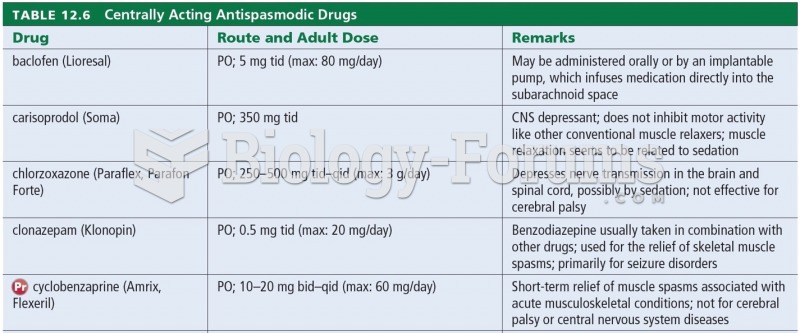|
|
|
Egg cells are about the size of a grain of sand. They are formed inside of a female's ovaries before she is even born.
When Gabriel Fahrenheit invented the first mercury thermometer, he called "zero degrees" the lowest temperature he was able to attain with a mixture of ice and salt. For the upper point of his scale, he used 96°, which he measured as normal human body temperature (we know it to be 98.6° today because of more accurate thermometers).
The average person is easily confused by the terms pharmaceutics and pharmacology, thinking they are one and the same. Whereas pharmaceutics is the science of preparing and dispensing drugs (otherwise known as the science of pharmacy), pharmacology is the study of medications.
In 2012, nearly 24 milliion Americans, aged 12 and older, had abused an illicit drug, according to the National Institute on Drug Abuse (NIDA).
The calories found in one piece of cherry cheesecake could light a 60-watt light bulb for 1.5 hours.
 The Land Ordinance of 1785 called for surveying and dividing the Western Territories into square mil
The Land Ordinance of 1785 called for surveying and dividing the Western Territories into square mil
 The cultural and racial–ethnic diversity of today’s work force has led to the need for diversity ...
The cultural and racial–ethnic diversity of today’s work force has led to the need for diversity ...





